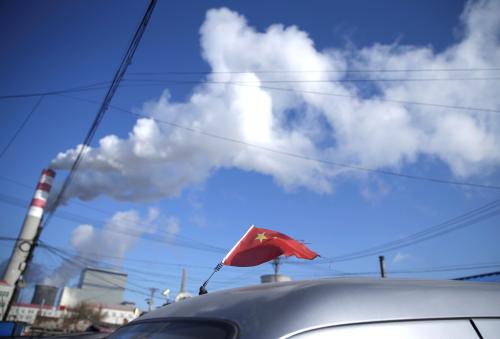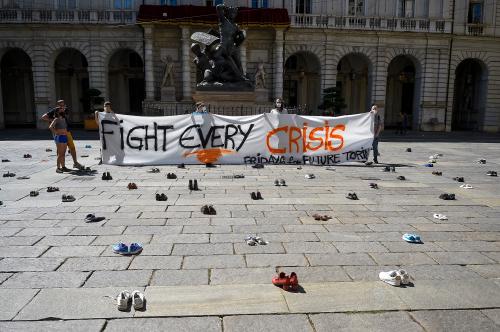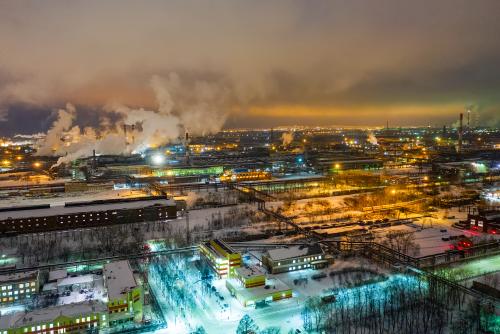The failure of free markets to curb the air and water pollution caused by the economic activity should by now be beyond question. But certain political and industrial groups argue that markets should be left alone to fix these problems. Here, the contention that markets on their own will tackle carbon emissions and the resulting global warming is problematic. It misses the reality that it is the market’s inability to price or put a value on clean air that underlies man-made climate change.
Government intervention is needed to stop the harmful spillovers of industries and individuals, such as water pollution or road congestion. But it is vital that these interventions are well-conceived and well-implemented, as government failure can be very costly too. In addition to underpinning pollution control with regulation on allowable emissions and some form of carbon pricing, success depends on technologies, such as carbon capture and sequestration, and the availability of finance for these technologies.
Here’s why valuation of air is important. If the damage from climate change—for instance, from the increasing frequency and severity of climate-related floods, storms, droughts, and heatwaves—was directly proportional to a country’s own emissions, countries would be swift to tackle climate change. But the asymmetry between the two, that is, the gulf between one’s own contribution to the problem and the damages it faces, is part of the reason why valuing clean air is so difficult, and why there must be international agreement.
One way forward is to tax the amount of carbon emitted, which is like having a price for clean air. Another way is for all countries to agree to lower levels of emissions and legislate actions to meet their targets. The Paris climate agreement among 195 countries is a decisive step along this path. If neither of these approaches is taken, we can only hope that businesses voluntarily switch to low-carbon paths, and that people live greener lives.
A global agreement on maximum allowable emissions by countries, enforced by national legislations, and a complementary carbon tax would be key to sending signals to businesses and households to cut carbon levels. Implementation of the Paris commitments would be a good start to establishing limits to carbon emissions. Disincentives to carbon pollution exist in some countries, mostly as taxes on energy production and motor vehicles, but there is a distance to go in making this the norm let alone taxing carbon directly (rather than the polluting fuels).
On the other side of the spectrum, fossil fuels, rather than being taxed like cigarettes because of their ill-effects, are subsidized in many countries. A 2015 International Monetary Fund report estimated that the global fossil fuels subsidies cost taxpayers and consumers $5.3 trillion year. In the past three years India and Indonesia have cut diesel and gasoline subsidies, which is good news. By another estimate, removing energy subsidies would result in a 20 percent cut in global carbon emissions. Where harmful spillovers are involved, it would be sound welfare economics to penalize sectors of the economy concerned, for example, with respect to discouraging coal.
The United States had committed to reduce carbon emissions to 17 percent below 2005 levels by 2020, using actions such as putting a lid on emissions from power plants. Even if the Paris climate agreement is fully implemented by all parties including the U.S., the resulting emissions and global warming would still be far too high, as the following Figure 1 illustrates.To stay below the threshold of below 2 degrees Celsius warming, the Paris pledges and promises will need to be overshot.
Figure 1: Projections of global greenhouse gas emissions
 Source: Climate Action Tracker
Source: Climate Action Tracker
History offers plenty of examples of civilizations that have been cut short by self-inflicted or externally introduced devastation. The Mayan civilization in present-day Guatemala collapsed between the 8th and 9th centuries from a prolonged drought, exacerbated by deforestation that forced Mayans to abandon their cities. With Pacific islands being submerged by sea-level rises, the climate-change threat is already as apocalyptic as the lost civilizations of the past.
The reality is that the climate danger will not recede on its own. The argument for inaction springs from a misreading of basic economics. Unless we expect businesses and households to switch voluntarily to a low carbon path, market intervention, and collective action are essential.







Commentary
The danger of dismissing market failures
July 12, 2017